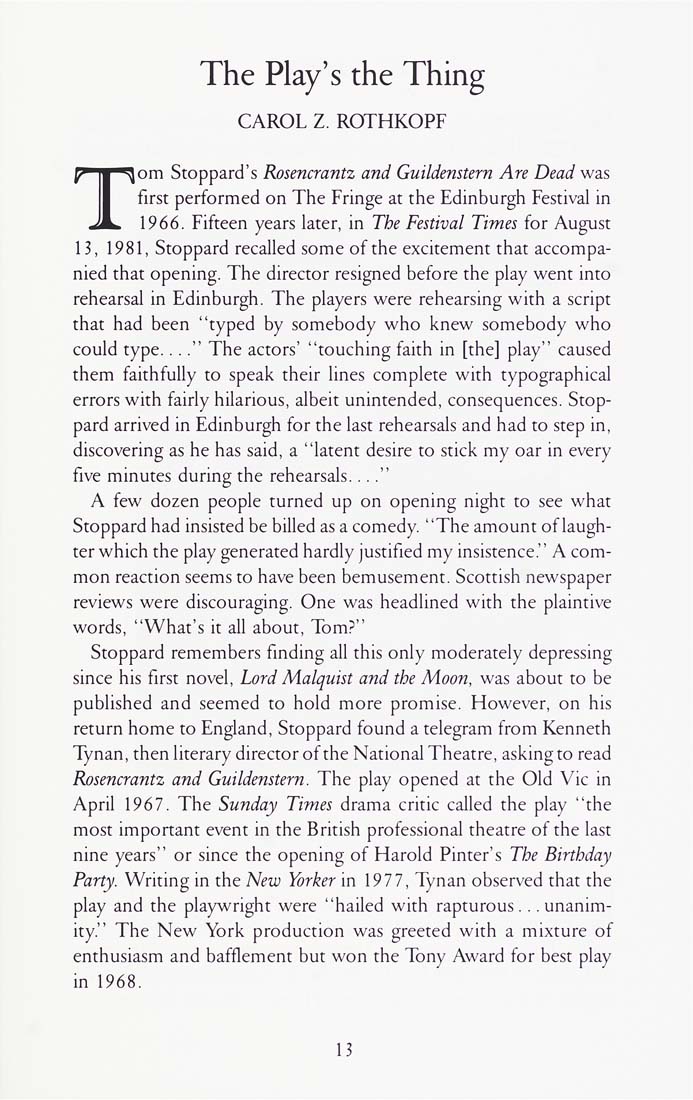Columbia Library columns (v.42(1992Nov-1993May))
(New York : Friends of the Columbia Libraries. )
|
||
|
|
|
|
| v.42,no.1(1992:Nov): Page 13 |

The Play's the Thing CAROL Z. ROTHKOPF Tom Stoppard's Rosencrantz and Guildenstern Are Dead was first performed on The Fringe at the Edinburgh Festival in 1966. Fifteen years later, in The Festival Times for August 13, 1981, Stoppard recalled some of the excitement that accompa¬ nied that opening. The director resigned before the play went into rehearsal in Edinburgh. The players were rehearsing with a script that had been "typed by somebody who knew somebody who could type.. .." The actors' "touching faith in [the] play" caused them faithfully to speak their lines complete with typographical errors with fairly hilarious, albeit unintended, consequences. Stop¬ pard arrived in Edinburgh for the last rehearsals and had to step in, discovering as he has said, a "latent desire to stick my oar in every five minutes during the rehearsals. . .." A few dozen people turned up on opening night to see what Stoppard had insisted be billed as a comedy. "The amount of laugh¬ ter which the play generated hardly justified my insistence." A com¬ mon reaction seems to have been bemusement. Scottish newspaper reviews were discouraging. One was headlined with the plaintive words, "What's it all about, Tom?" Stoppard remembers finding all this only moderately depressing since his first novel. Lord Malquist and the Moon, was about to be published and seemed to hold more promise. However, on his return home to England, Stoppard found a telegram from Kenneth Tynan, then literary director of the National Theatre, askingto read Rosencrantz and Guildenstern. The play opened at the Old Vic in April 1967. The Sunday Times drama critic called the play "the most important event in the British professional theatre of the last nine years" or since the opening of Harold Pinter's The Birthday Party. Writing in the New Yorker in 1977, Tynan observed that the play and the playwright were "hailed with rapturous. . . unanim¬ ity." The New York production was greeted with a mixture of enthusiasm and bafflement but won the Tony Award for best play m 1968. 13 |
| v.42,no.1(1992:Nov): Page 13 |







